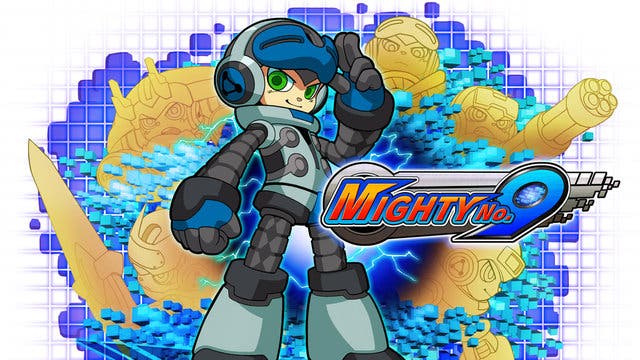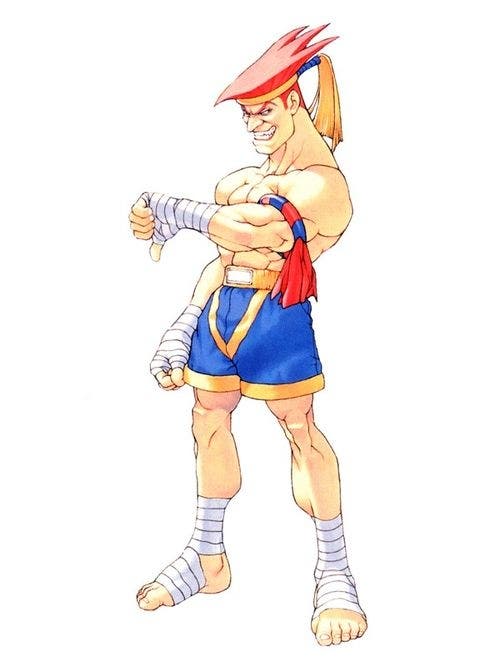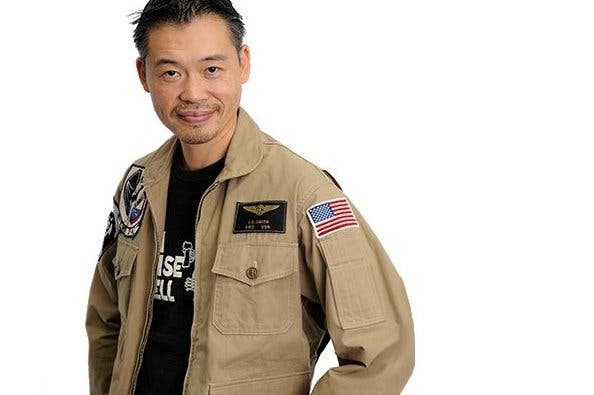Keiji Inafune: video gaming's harshest critic
"The true meaning of game design has been lost."
"Wouldn't it be nice if I could just say that I'm done and retire?" Keiji Inafune, implausibly 50, lounges on a bench, back against the wall, legs outstretched, crossed at the ankles, arms folded. The translator laughs to mask the sense of unease in the room. But it's not unexpected. Inafune, whose career in Japanese game development began in the late 1980s when he joined Capcom as an illustrator (he helped design the original Street Fighter's iconic characters, Ken and Ryu) has a reputation for bolshiness. After designing Mega Man, a game series that sold tens of millions of copies, Inafune rose Capcom's ranks to become global head of production. It could have been a job for life, but in 2010 Inafune announced on his blog that he was leaving to "start...life over." Freedom of employment (he started his own company, Comcept) seemingly brought with it freedom of speech: during a talk at the 2012 Game Developer's Conference in San Francisco, Inafune accused the Japanese video game industry as being in a "tragic state." The verdict made him few friends.
Today, in a plush-carpeted meeting room that smells of old coffee and new plastic, hidden inside Microsoft's stand at the E3 conference in Los Angeles, Inafune's un-Japanese outspokenness has not dulled. "The truth is this," he says. "Had I been born in America, and had I sold 30 million copies of my game Mega Man, I'd be retired by now. But that's not how it works in Japan, is it? Even if I'd have come up with Minecraft I would never have become Notch. That's just how our society works."
Is Inafune's seemingly anti-Japanese rhetoric rooted in resentment? No, he says. "I say these things, not in a spirit of bitterness, but as a positive. It's what has kept me going in this industry. The system is set-up in such a way that I've not been able to retire off a single major success. So, it's a different path we're taken down, just by virtue of being Japanese. It's a good thing. It's allowed me to continue to make video games."
Two days earlier, Inafune's current project, ReCore - a collaboration between Comcept and Armature studios, the Texas-based studio with members whose past credits include Metroid Prime - was given top billing during Microsoft's E3 show. The game is scheduled for release in 2016 - but no footage was shown, only a pre-rendered movie of a young girl, Joule, and her robot dog, Mack, excavating technology from post-apocalyptic sand dunes. It is, he says, just one of a clutch of games that he is still eager to make before he retires. "If you were to come and visit my office I can show you all these other ideas that are written out but haven't been touched, maybe because of other commitments. I have many ideas I want to work on -it's as simple as that."
Nevertheless, Inafune believes that, today, these grand and inventive Japanese ideas need Western partners, who are able to realise the vision. "Western developers can formalise our ideas and make them workable," he says. "They are the ones able to realise the vision." It's a model of development that Inafune pioneered while still at Capcom, with titles such as Dead Rising. It's also how he's making ReCore. "What tends to happen is that the Japanese team will send across a shell of an idea," explains Mark Pacini, Armature Studio's game director. "They might say: 'Wouldn't it be great if there were robot characters you can customise and take along on your adventure?' It's our job to figure out how to we use that in gameplay. How might players build one of these characters? What does that mean? Essentially, we take a general idea and do our best to make it a reality."

For Inafune, a surplus of ideas remains one of the strengths of Japanese game creators even if, as he puts it, they aren't always able to fully deliver on those ideas. "In a good way, we Japanese creatives bring to the table these fluffy ideas of world and character settings," he says. "Sometimes it's just a mood, or tone or ambiance that we verbalise. But it takes a little while for the team to understand. I'm generalising, but when I see successful Western games, there's a sense of scale: a big world and big things. But when it comes down to themes or core ideas, I feel like there is way too much of the same thing. There are small differences in sequels, but it never strays far from the core successful ideas. Perhaps it's the variety of entertainment interests in Japan that allow us to start from a different place, to have somewhat greater diversity."
Inafune believes that this narrowness of subject matter in Western video games - the guns, the explosions, the warzones - is the result of the financial conservatism of publishers. "When a particular game is a success, publishers tend to use it as a template to guarantee further success. So we end up with many studio games that follow this narrow path. If this continues, and investment continues to flow in that direction, we will never widen what games are and can be."
Inafune tugs at the brim of his cap. "You know, I think the true meaning of game design has been lost in recent years. If you're an aspiring game designer and you join large team most likely you will be told: 'Here's our template. Your job is to make it more... splashy.' That is not real game design! Things are better in the independent scene - although not everyone there is doing inventive work. But I do see more of a desire to make new types of games in new types of ways. The more creators we have from that side, the better chances our industry has for broadening its overall portfolio, the spread of genres. God, I hope our industry can support those efforts. We need a wider variety of games to play."

This drive to create new kinds of games, away from the large studios, is what Inafune hopes will help to turn around the Japanese industry, of which he has been so critical. "You know, back when I made those very bold statements a lot of my colleagues in Japan - whether they knew me personally or not - couldn't believe my comments. They were like: 'why are you saying these things? You are Japanese. You're putting us down.' Well, a few years have gone by and I will say with confidence that a lot of those same people have now accepted that what I said was true. The conversation has now turned to what we can do about it and how we can recover. So, in a way, I predicted the future."
For Inafune, little has changed in the three years since he made his controversial statement. As he points out, there are very few Japanese titles among the major announcements in the E3 press conferences. "But what has changed is the way in which Japanese designers have now embraced Kickstarter campaigns," he says. "It's been a confidence-building exercise. Japanese people have been able to see through crowd-funding efforts for titles such Mighty No.9, Yu Suzuki's Shenmue 3 and Koji Igarashi's Bloodstained: Ritual of the Night that there is a demand for our games. We're not dead. And it's a good feeling to see that our belief in these projects was not misplaced - even though publishers passed over them. We've planted a seed and it's growing. Now we need to deliver on our promises so that the plant can flourish. If we can achieve that, the long-term positive effects will be significant."
Inafune's brashness is often criticised by Westerners who argue that he hasn't earned the right to pour scorn on his contemporaries. For all its popularity, the Mega Man series has neither the ingenuity or influence of Shigeru Miyamoto's Mario. But this discounts the designer's role as mentor to young designers. Earlier this year, Street Fighter 4's producer Yoshinori Ono said of his former boss: "I learned everything about being a producer from him; I looked up to him. He became my mentor and teacher. Even though he's no longer at Capcom, Inafune's approach is still present with me every day."
Indeed, it's clear that Inafune still sees mentorship as one of his key roles in the industry. "I have things I want to pass on to the next generation," he says. "By doing that, maybe some day they will go way beyond what I could ever achieve today." According to Inafune, creative people generally leave their industries for one of two reasons: either they are comfortable in terms of money and reputation and have nothing left to say. "Or they can see that there are enough up-and-coming creators who are doing things way beyond your imagination; you can no longer compete any more," he says. "I don't think I'm at that stage. I think it's the same for Miyamoto and [Hideo] Kojima. There is more for me to do too. I can see myself continuing on till the day I am physically unable to do so any more. You know, maybe I will be making games till I die."










